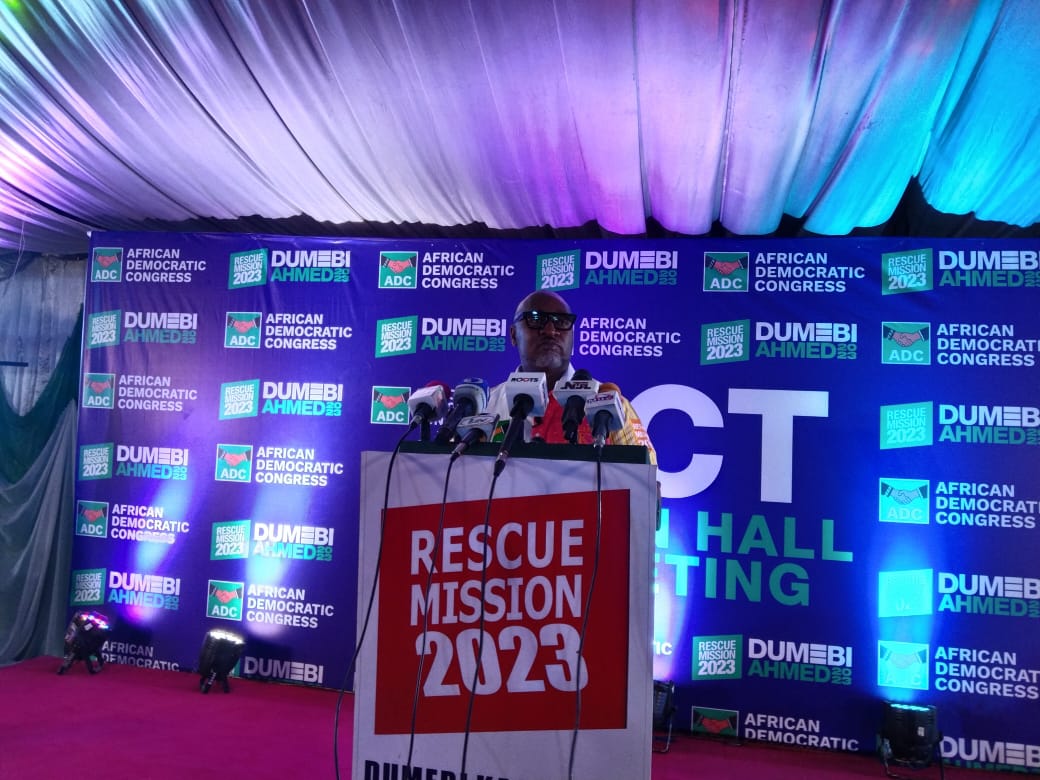Following the suspension of capturing of biometrics for new Enhanced E-Passport at the Nigeria High Commission in London, United Kingdom, a group of Nigerians under the aiges of the Nigerians in Diaspora (ND) have condemned the announcement of the Nigerian High Commissioner, accusing him of, “fraud, extortion and undue hardship being inflicted on legitimate passports applicants.”
The group said the news broke Sunday night as a wrong signal to many Nigerians particularly those that have had to travel long distances from Scotland, Northern Ireland, Manchester, Cardiff, Birmingham, and so on to the Mission in London without positive resolution of their respective consular issues.
The statement signed by one Mrs. Ada Liwett, on behalf of the group and released to newsmen Monday in Abuja, recalled the deplorable situation of passport issuance and renewals after the lockdown and the then suspension of operations between December 2019 and April 2021 in a supposed attempt to address the issues responsible for the then anomalous situation.

The group accused the High Commissioner to be unhappy that the avenue for illegal charges has been stopped following the visitation of the Minister of Interior, Ogbeni Rauf Aregbesola who after the launch of the enhanced E-passports abolished the fast track processing.
The statement said: “A number of Nigerians spoken to over the development alleged that the move by the High Commissioner could be linked to his idea of giving prominence and attention to the compulsory 120 pounds fast track system.
“This, they argued had been the only system that has been working since the lockdown, all other normal procedure have been rendered inactive and useless.
“They also claimed that if you don’t have the 120 pounds, it means you cannot get attention to process application and eventual issuance of passports at the Nigerian High Commission in London.”
According to the diaspora group, the continuous physical and verbal assaults of the staff of the Mission arising from the frustration many face however led to a meeting of the Nigerian Community convened to find a solution to the challenges associated with passport issuance before it deteriorates into avoidable calamities.
“The meeting took place on Tuesday, 22nd March 2022, at the Conference room of the Nigeria High Commission, London. Present at the meeting were members of the Nigerian Council of Elders in the UK, comprising Pa Adebayo Oladimeji, Arc Otunba Mobolaji Falase, Dr. Boma Douglas, Chief Fred Ajiduah, in concert with the Chairman of Central Association of Nigerians in the United Kingdom (CANUK) – Mr. Ayo Akinfe, leading the Executive members of the Association. Nigeria High Commission was led to the meeting by the High Commissioner, other members included the Deputy High Commissioner, Head of Immigration, Head of Chancery, Immigration Attachés, staff of the Consular, Education and Welfare Section.
“We have it on good authority that while the meeting lasted, reports on telephone calls received by the Mission consistently put average call logs of 84% on the frustration associated with the Enhanced E-passport while the CANUK Chairman reported that 70% of the challenges of Nigerians from December 2021 till date centered on the frustrations now associated with the new Enhanced E-Passport.
“Apparently optimistic that the said meeting would yield positive results in finding lasting solution to the yearnings of Nigerians in the UK, the shock news broke last night that the biometrics capture on the new Enhanced E-Passport at the Nigeria High Commission in London was suspended with effect from Monday, 28th March 2022.
“Suspending this working process again by the High commissioner is however, tantamount to frustrating the efforts of Immigration for his own selfish interest and subsequently jeopardize the efforts of Immigration Services in alleviating the problems facing Nigerians in the UK to obtain their legitimate Nigeria passport.
“A particular group of aggrieved Nigerians in the UK are said to be making moves to organize a representation of concerned Nigerians to travel from the UK to Nigeria to meet with the Federal House of Representatives and the Senate to bare their minds on the undue hardship they have been subjected to over passports application and issuance since the Nigerian High Commissioner to the UK resumed at the Mission in London.”




